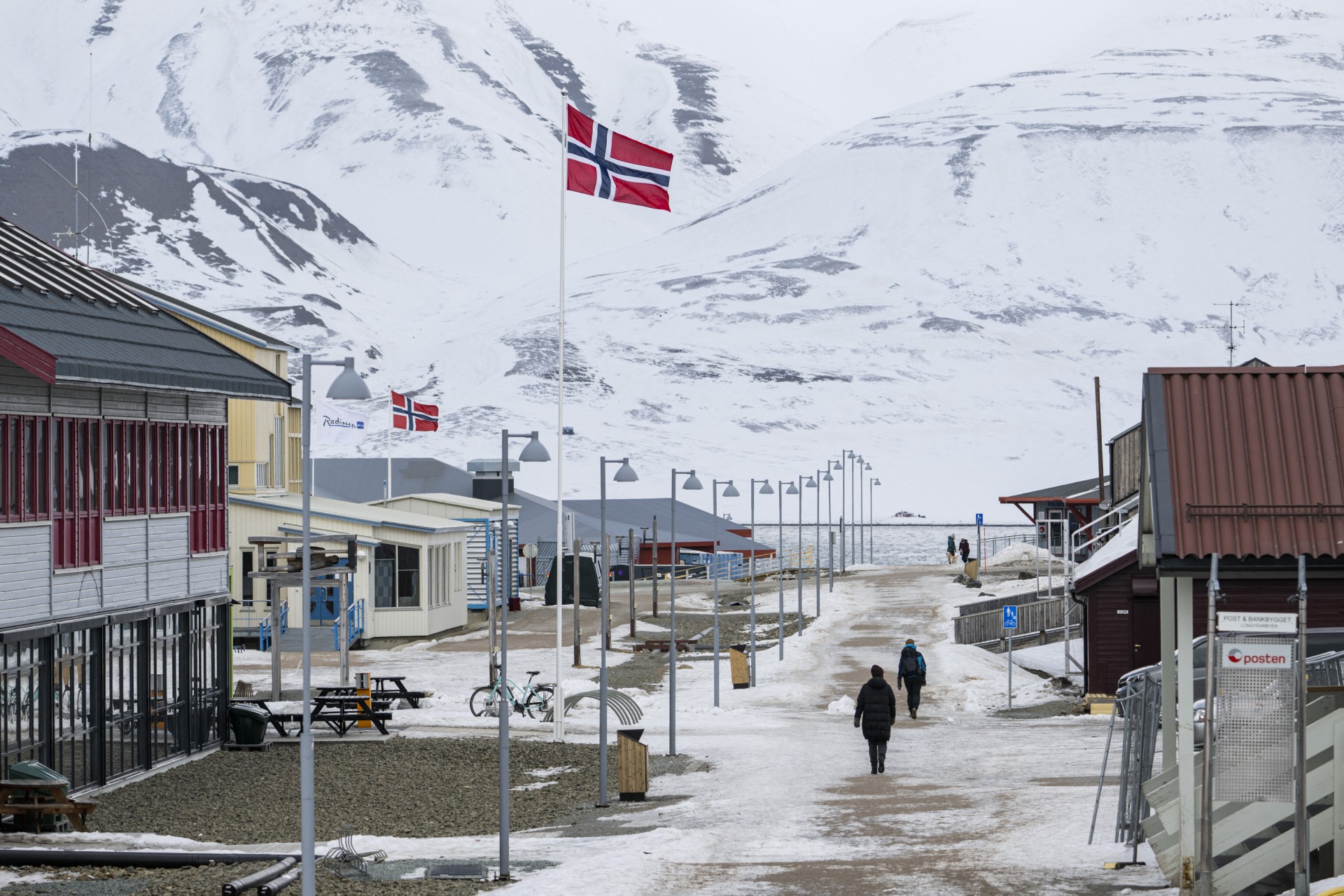
It’s no secret that some degrees lead to more lucrative jobs than others.
To take it a step further, certain postgraduate degrees — such as a master’s or, better yet, a PhD — can snag you jobs with the highest earnings and lowest unemployment rates.
The United States Bureau of Labor Statistics states that completing higher levels of education typically results in higher annual earnings. For example, the median yearly income for a high school graduate is US$44,356 per year, while those with a bachelor’s degree can earn a median average of US$77,464 a year.
The downside of all that is that the cost of pursuing a terminal degree abroad can be eye-watering — but not if you’re studying in the cheapest countries to study a PhD.
Going abroad for your PhD can be worth it
There are many reasons to study abroad for your PhD.
You’ll be able to access unique research opportunities, study at globally reowned universities, expand your horizons and develop new interests.
Most importantly, there’s a chance to pay less for your degree.
Normally, full-time PhDs last for around three to four years, and those who enrol in three-year programmes often only finish their thesis in their fourth year.
Meanwhile, part-time PhDs can take up to six or seven years — and that’s not even considering the fact that the thesis deadline can be extended by up to four years at the institution’s discretion.
Naturally, as the years add up, so do your tuition, living, and other miscellaneous expenses when studying abroad.
Some PhD students are even forced to find part-time work just to make ends meet.
Luckily, however, there are a handful of countries where you can study for a PhD programme that won’t have you breaking the bank in your pursuit of quality knowledge.
The cheapest countries to study a PhD for international students
Sweden
A country that boasts a culture of ingenuity, invention, and innovation; the home of iconic brands and products such as Spotify, IKEA, and Bluetooth. Pursuing a PhD here may very well be an ideal choice, especially if your goal is to produce original, groundbreaking work and research.
The best part about pursuing a PhD in Sweden? It is free for all — including international students. Couple that with a relatively low cost of living (US$2,264 a month), and your future is in good hands.
Some institutions even offer generous PhD stipends or salaries in return for your work.
One thing to note is that this only applies to this terminal degree; non-EU/EEA students pursuing bachelor’s or master’s programmes will still need to pay for tuition, though even then, it’s still pretty affordable.
On top of it all, Sweden is home to some highly-ranked universities — seven of them are listed in the top 350 universities in the QS World University Rankings 2025.
The best universities in Sweden, KTH Royal Institute of Technology and Lund University, are ranked 74th and 75th respectively.

Norway is one of the cheapest countries to study a PhD, though if you’re averse to the cold, you might want to think twice about it. Source: AFP
Norway
Norway is another beautifu Nordic country that tops the list of cheapest countries to study a PhD in.
It prides itself on lifelong learning. Despite the small size of its higher education system, the country has many world-leading universities that deliver high-quality programmes, producing amazing artists, thinkers, and scientists, such as historian and playwright Ludvig Holberg, Edvard Munch who is best known for his iconic piece The Scream, and no less than 13 Nobel Prize winners.
While the country has no longer been a tuition-free option for international students beginning 2023, its fees still remain fairly affordable.
A notable thing about pursuing your PhD here is that PhD candidates do not have student status in Norway — you’re considered to be an employee instead. Therefore, no tuition fee is required, and you receive a salary.
However, universities will require you for funding that covers living expenses and necessary working capital. This can come in the form of doctoral research fellowships or affiliation with an academic community, institution, or similar.
Norway has two universities ranked in the top 350 of the QS World University Rankings 2025: the University of Oslo at #119 and the Norwegian University of Science And Technology at #264.

International students who study in Finland get to bask in the spectacular views of incredible natural phenomena witnessed in only a few parts of the world, such as the Northern Lights. Source: Oliver Morin/AFP
Finland
Finland is another Nordic country which tops our list of cheapest countries to study for a PhD for international students. The amazing scenery, safe cities and high quality of life are also great bonuses.
Like Norway and Sweden, studying for your bachelor’s or master’s is affordable here, and it doesn’t cost anything to pursue your PhD.
The reason? According to a European Commission 2023 Country Report report, Finland has the lowest tertiary education attainment rate among the 14 OECD countries, causing a “major bottleneck to innovation”. This highlighted the inadequate funding of PhDs and the shortage of skilled workers available in the country.
In an attempt to bolster its science-industry knowledge exchange, the Finnish government announced that they would fund 1,000 PhDs who have to finish in three years in late 2023.
The programme has been widely welcomed since then, The initial funding for the programme was US$281 million, but soon after, the government promised an additional US$269 million for even more doctoral training.
Over the course of 2024, the government pushed to increase the number of PhD graduates and strengthen the societal impact of PhD training.
This pilot programme, which began in 2024, saw the government allocate over 260 million euros (US$281 million) to test a new model for PhD education in Finland, aiming to increase the number of PhD graduates and strengthen the societal impact of PhD training.
Finland is home to four of the top 350 universities in the QS World University Rankings 2025 list. These include Aalto University at #113, the University of Helsinki at #117, Lappeenranta-Lahti University of Technology LUT at #336, and the University of Oulu at #344.

Germany offers some outstanding research opportunities for students and has even partnered with several organisations to foster application-oriented research. Source: AFP
Germany
Germany has always been known for its world-class education system, innovation, and low-cost tuition fees for its students. Now, international students graduating from German universities can look forward to initiatives that help them secure jobs in the country from 2024 to 2028.
Here, universities don’t charge PhD students tuition fees, but require them to secure funding.
Lucky for you, there are many ways to acquire that — whether through the university’s doctoral fellowships or the various funding programmes available.
8 German universities are in the top 150 of the QS World University Rankings 2025 list, and there’s 19 total if you’re looking at the top 350:
- #28: Technical University of Munich
- #59: Ludwig-Maximilians-Universität München
- #84: Universität Heidelberg
- #97: Freie Universitaet Berlin
- #99: RWTH Aachen University
- #102: KIT, Karlsruhe Institute of Technology
- #126: Humboldt-Universität zu Berlin
- #147: Technische Universität Berlin (TU Berlin)

Not only do you get to enjoy quality education in France, but you’ll also get to immerse yourself in the rich culture and life in the country throughout your studies. Source: AFP
France
Another country to make it to our pick of the cheapest countries to study a PhD in is France.
You may be surprised to learn that Paris is home to an impressively large selection of universities ranked at an international level. They offer excellent programmes, large international student populations, and have solid reputation among employers globally — more importantly, they offer affordability.
The last part is due not so much to the local cost of living — Paris is notoriously expensive — but to the fact that tuition fees are relatively low.
Under French law, candidates cannot pursue a PhD without funding — you need a contrat doctoral that gives you the right to a salary and other benefits like healthcare before you are accepted into a PhD programme.
In short, pursuing a PhD in France means you’re guaranteed beneficial returns.
Some universities might require you to pay an annual tuition fee — Sciences Po requires 391 euros (approximately US$436) — though some universities don’t, so keep an eye on that.
10 universities in France are found in the top 350 of the QS World University Rankings 2025 list. The four that make it into the top 150 are the Université PSL at #24, the Institut Polytechnique de Paris at #46, Sorbonne University at #63, and Université Paris-Saclay at #73.
View this post on Instagram
Estonia
A pleasant surprise you might find on this list is none other than the picturesque Estonia.
All education is free at the PhD level in this Northern European country, so it is time to give it its due consideration. You may even receive additional grants and other scholarship opportunities, such as through the Estophilus scholarship, which is granted to foreign doctoral students and researchers staying in Estonia and conducting research or collecting material about the country for a period of 1-5 months.
Estonia’s best-ranking university is the University of Tartu, at #358 on the QS World University Rankings 2025 list.
It’s Estonia’s national university, and earning a doctoral degree here positions you for a career in academia: a total of 62 researchers from the University of Tartu belong to the top 1% of most-cited researchers in the world.
The university offers eight doctoral programmes (further divided into specialisations), all of which fall under one of four centres for doctoral studies: humanities, social sciences, medicine and sport, and science and technology.
Austria
If you are looking for one of the cheapest countries to pursue a PhD, Austria should definitely be on your radar.
Public universities in Austria charge little to no tuition fees for PhD students, especially if you’re from the EU/EEA. Even if you’re a non-EU student, the tuition is still affordable at around 726.72 euros per semester.
The University of Vienna, ranked among the top 150 universities worldwide, is one of the best institutions in the country to pursue your PhD.
Fun fact: Vienna has been ranked the “world’s most liveable city” multiple times, so you’ll be advancing your career in a great environment.
Denmark
Denmark is a solid choice if you are looking to pursue a PhD without breaking the bank.
Here, most PhD positions are structured as paid jobs, meaning you don’t pay tuition fees; instead, you actually receive a salary while you study. You will literally be getting paid to do your research.
PhD students in Denmark earn around 32,000 DKK (US$5,038.98) per year.
The University of Copenhagen, ranked in the world’s top 100 universities, is considered the best place to pursue a PhD in the country, with strong research programmes across science, technology, and social sciences.
Even though the cost of living in Denmark can be high, the salary you get as a PhD student usually covers your expenses, so you won’t have to stress over rent or groceries.
Czech Republic
On the hunt for a budget-friendly PhD? Czech Republic is definitely worth checking out.
Public universities here often offer PhD programmes with zero tuition fees if you study in Czech, and even in English. The fees are super low compared to other European countries, costing around 500 euros (US$587.88) to 3,000 euros (US$3,527.25) per year.
Charles University in Prague, one of the world’s top 250 universities, is an excellent choice for pursuing your PhD. As one of Central Europe’s oldest and most prestigious universities, it provides a strong research environment and a wide range of English-language programmes.
Prague isn’t just the capital, it’s also one of the most student-friendly cities in Europe, full of history, nightlife, and affordable coffee spots to fuel you as you pursue your PhD.
Disclaimer: This article was last updated on September 9, 2025.










